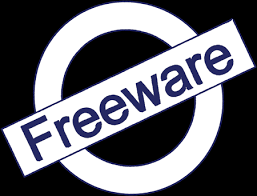Table of Contents
Many popular POS systems can be a gamechanger for a retail or restaurant business. But what is a POS system? When people say POS system in retail, they usually mean point of sale. But even this is ambiguous. They may be referring to the payment terminal that captures payment at the point of sale. They could be referring to the business software that manages the check-out process – and/or inventory management. Or they could be referring to the hardware bundle that does all the above.
Regardless, POS systems are becoming increasingly popular in businesses of all types of sizes and retail verticals. This article will discuss what a POS system is and how it works.
POS System Market Size
According to the research published by Statista, the size of the market in 2023 is estimated at about $2 billion in the US. Of this, about 40-45% of this is POS hardware, 40-45% of this is services and 10-15% of this is software. The market has experienced steady growth and is expected to keep growing given the importance of driving business efficiencies through technology.

While software is the smallest piece of the market – we will be focusing on software in this article.
What is POS?
According to Wikipedia, the definition of point of sale is as follows:
‘The point of sale (POS) or point of purchase (POP) is the time and place at which a retail transaction is completed. At the point of sale, the merchant calculates the amount owed by the customer, indicates that amount, may prepare an invoice for the customer (which may be a cash register printout), and indicates the options for the customer to make payment. It is also the point at which a customer makes a payment to the merchant in exchange for goods or after provision of a service. After receiving payment, the merchant may issue a receipt, as proof of transaction, which is usually printed but can also be dispensed with or sent electronically.’
Let’s make a couple assumptions on definitions:
Point of sale – the place where a customer executes the payment for goods or services.
POS software – the software that manages the check-out process and inventory management.
POS system – Bundle of hardware, software, and services that takes the place pf a traditional cash register.
POS systems always have a method ring up sales and to record transactions. They also keep track of the amount of money flowing in and goods flowing out over a time period. Good POS systems manage product records and inventory.
POS systems regularly include the following hardware:
- Display screen showing transaction and product data
- CPU to run the POS software
- A printer to print the sales receipts
- Cash drawer to manage cash transactions
- POS software to run the business
- Price label printer to generate barcode price labels (optional)
- Barcode scanner to scan UPC codes (optional)
When does the business need a POS system?
We think that any permanent business would benefit from a POS system, from small kiosk to a complex multi store retailer. All businesses would benefit from a computer program that would automate the sales process and keep track of financial performance. POS software can provide reports on sales performance, cash flow, inventory, customers, and more. And if the business keeps items in stock, an inventory management system is beneficial. We think that all types of businesses should have at least a very basic POS system to manage their business.
With free POS offerings and low-cost hardware, even small businesses can build a POS system right for your store. Plus, a POS system will allow you to grow in the future. You just need to make a small investment in POS hardware and commit time to installing and configuring a POS system that is suitable for your business.
How does the POS system work?
The POS system is a central part of your business – storing the critical sales, customer and transaction information at the point of sale. A POS system adds items sold to a transaction at the sales price, captures the customer making the purchase, calculates the taxes and total, helps collect and record the payment and prints a sales receipt for the customer. It also adjusts inventory for the sale and organizes the financial information so that it can be viewed in a report.
When new products are added to the store’s product catalog, the POS system will save detailed information about each product, including its product name, ID, vendor, brand, cost to buy, sales price, categories, characteristics, quantity in stock, image, and any other relevant characteristics. Basically, everything that is needed to track and sell the product.
When the customer decides to make a purchase, the salesclerk can collect information on the customer for marketing purposes, such as name, phone, mobile, address, email and any preferences.
A POS system also needs to collect a payment. Good POS systems offer a variety of ways to complete a payment – check, cash, credit card, credit account, gift cards and store credits at a minimum. The clerk should be able to choose from a variety of payment methods that are supported by the POS system. When the retailer collects payment and prints a receipt, the sale is considered complete.
Modern POS systems can often be expanded and enhanced by connecting data with outside third-party CRM, accounting, and ecommerce applications. With the integration between the POS system at the retail store and an ecommerce sales platform, the store owner can manage both channels at once. The integration of a POS system with an accounting application such as QuickBooks minimizes errors in the entering sales, payment, and inventory into your accounting system manually.
What Information is Saved by a POS System?
POS systems should save transaction data and make it available to store employees. The data should be organized in a way that it can be printed on reports. The information stored in the POS system records can provide information about the sales and inventory activity of the business. This can include the demographics of customers and sales activity by customer. This will enable the business to target customers for marking and promotion programs. Recording the purchase activity will help identify the buying behavior of customers, such as which items are the best sellers, which items are most profitable, and any seasonality. All of these can greatly influence the purchasing and pricing decisions of the business’s manager and owners.
The benefits of POS system for business
POS systems and software can help better manage the sale process in retail stores or managing inventory. Here are some of the benefits of a POS system for a retail business:
- Enhance efficiency by automating manual tasks
- Better monitor performance via real-time reports
- Reduce risk of theft and fraud
- Make better purchasing decisions
- Manage multiple store locations
- Measure employee performance
- Accept different payment methods
- Offer customer loyalty programs
- Integration with 3rd party apps to reduce manual data entry errors
- Better track inventory
Common features of a POS system
What are the critical features of a POS system that you should look for? Below you will find a list of some of the common features in a POS software system, such as:
- Front register sale features
- Customer order management
- Inventory management
- Purchasing/receiving modules
- Employee management/time clock
- Customer management and loyalty programs
- Integrations with 3rd party apps
- Integrated payment processing
- Reporting
There are lots of POS system vendors on the market, offering a wide range of features and functions, and serving different retail market segments. Therefore, before deciding, it is critical to review information about the features and services of the POS software before you make your choice.
Popular POS systems
Retail Stores
Restaurants
Conclusion
Hopefully this article provides information to better understand POS systems, how a POS system works, and how it can support your retail business activities. A POS system can be a useful tool to better manage your business.


